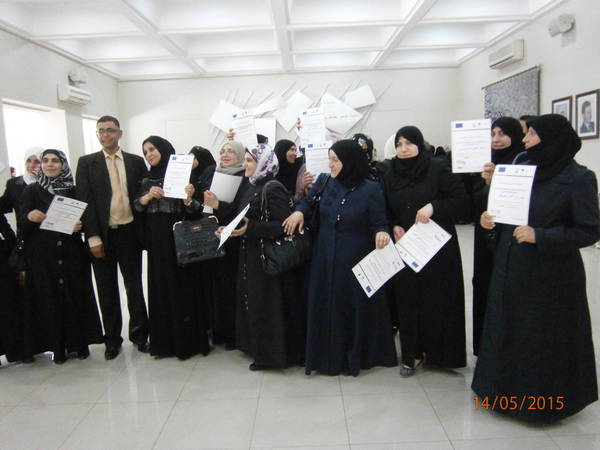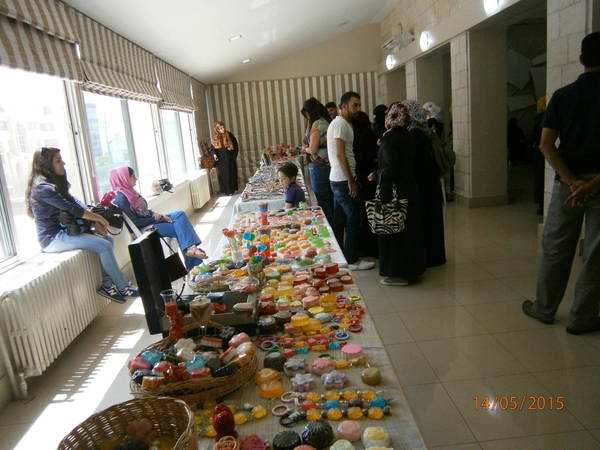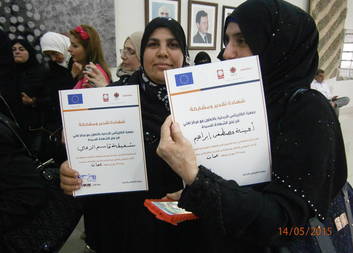The European Union has awarded a grant of 1,2 million JOD (more than CZK 41 million) to support refugees from Syria and socially disadvantaged Jordanians who suffer from the effects of the crisis in the Middle East.
 Caritas CR, together with its Jordanian counterpart, have organized a training of practical, professional and technical skills for 1,200 people in six different regions. By the end of the second phase of the project, they offered support to 66 Syrian refugees and chosen Jordanians.
Caritas CR, together with its Jordanian counterpart, have organized a training of practical, professional and technical skills for 1,200 people in six different regions. By the end of the second phase of the project, they offered support to 66 Syrian refugees and chosen Jordanians.
The project was organized by the EU, Caritas Jordan, Caritas Czech Republic and it consisted of three thematic training courses in the region of the city of Irbid. During the courses, local people were instructed in soap and candle making, food recycling, packaging, labelling and processing. Another course that focused on post-conflict construction took place in Mafrag. This course was organized by the local institution Parallel Perspective Management Consulting in cooperation with local skilled workers. The local parish together with the municipality from the nearby village Kur offered their help by providing backgrounds for the courses.
All participants showed enthusiasm and gratitude toward the European Union and both Caritas since they allowed them to take part in the programme and to gain new valuable experience which will help them in their future careers. In their eyes, the most important contribution of the project is the tools, knowledge, and hope for a better future. It is important to mention that the programme has also strove to develop stronger relationships between participating Jordanians and Syrians.
 One Syrian refugee, Azzah Al-Bagri, who took part in the course focused on food packaging and labelling, commented on this experience as follows: “I am really happy for the opportunity to become a part of a charity programme. I have learnt new things about food packaging and labelling. It was very interesting and enriching. I hope we will have the possibility to undergo further training. I would like to thank the EU and both Caritas for their support.”
One Syrian refugee, Azzah Al-Bagri, who took part in the course focused on food packaging and labelling, commented on this experience as follows: “I am really happy for the opportunity to become a part of a charity programme. I have learnt new things about food packaging and labelling. It was very interesting and enriching. I hope we will have the possibility to undergo further training. I would like to thank the EU and both Caritas for their support.”
The project Assistance to Syrians living in Jordan is funded by the European Union and in the region it is backed by the Caritas CR with the help of local partners the Caritas Jordan and the Caritas Switzerland. The main donor of aid in crisis-affected areas is the EU, whose member countries have already made available EUR 3,6 billion to foster support in the Middle East.
The Caritas Jordan has existed since 1967 and it has been actively engaging in Syrian crisis management. The Caritas Czech Republic has focused its activities on education and living support in almost 20 countries in the world. It provides help to Syrian refugees directly in Syria thanks to its collection for Caritas for Syria.






